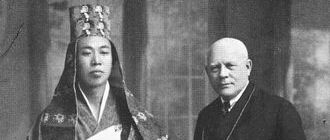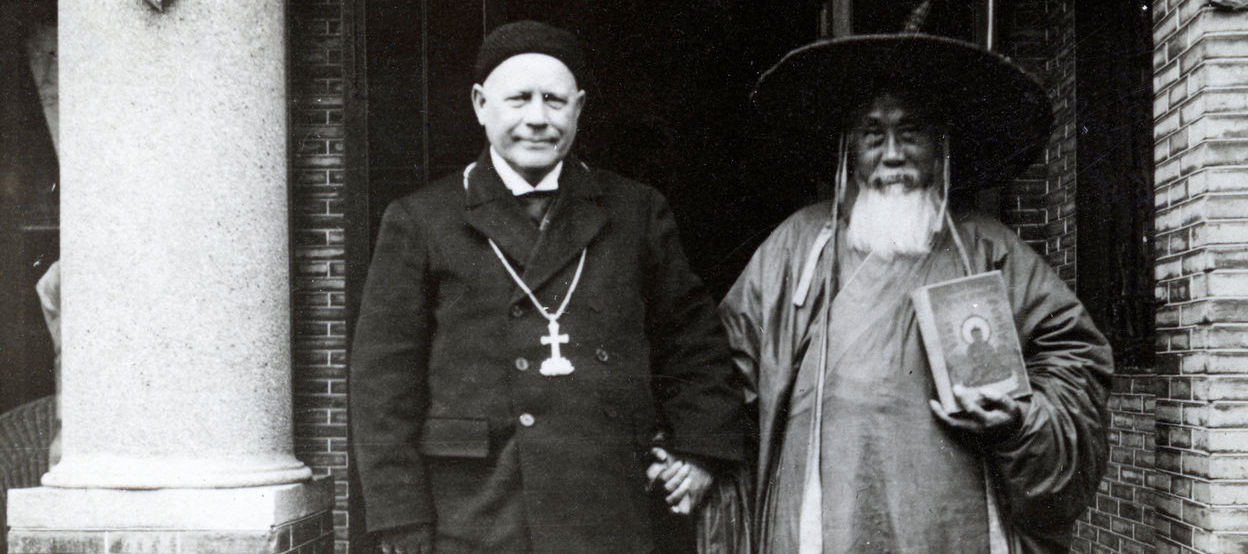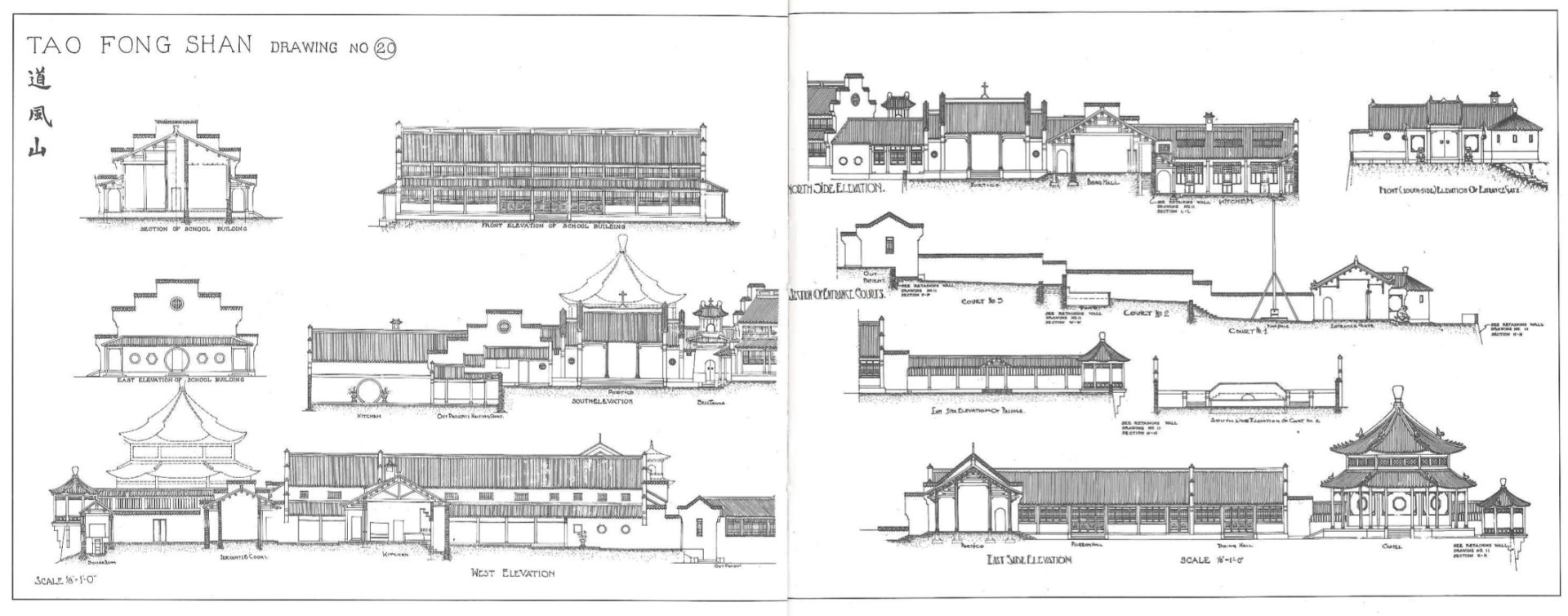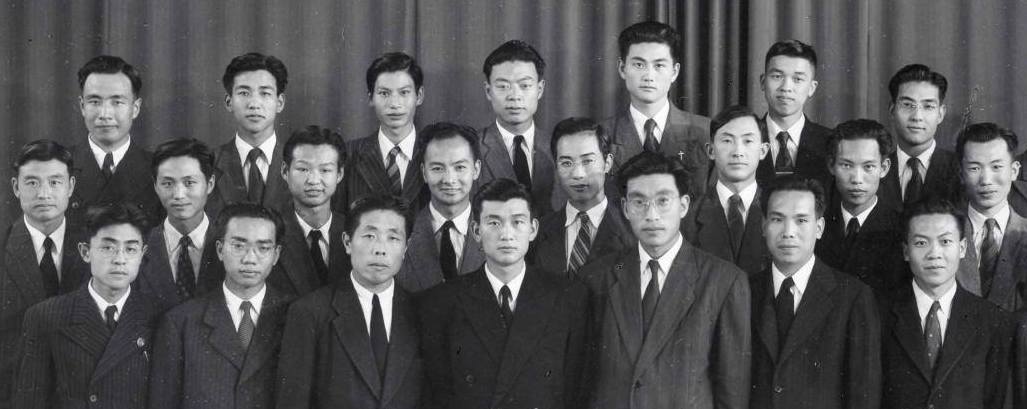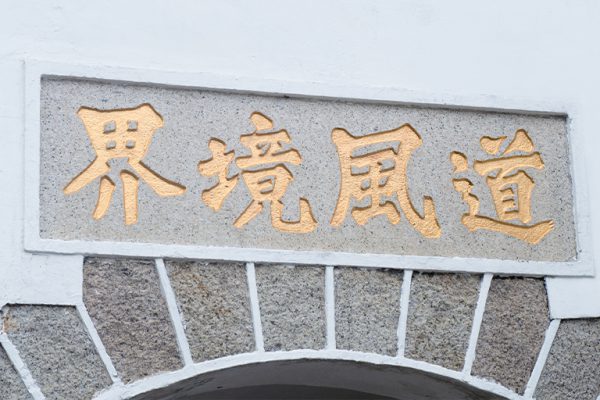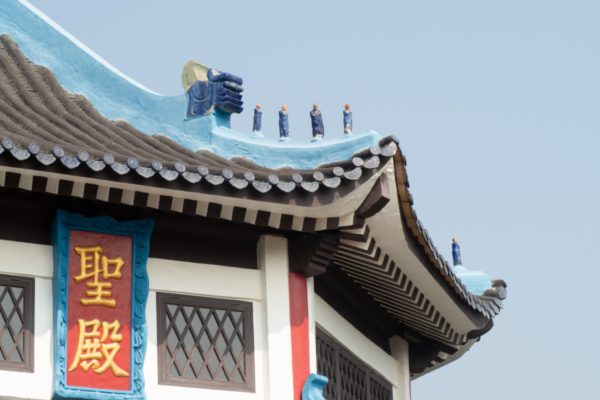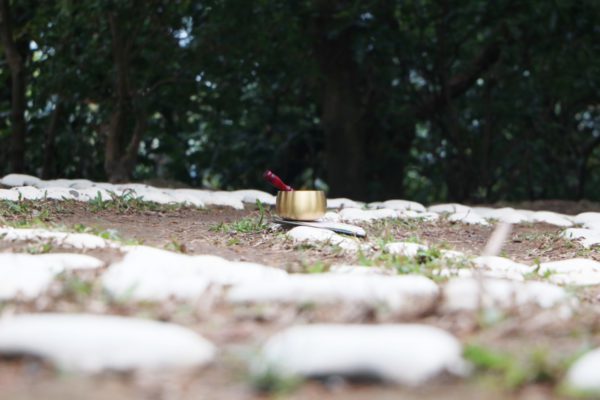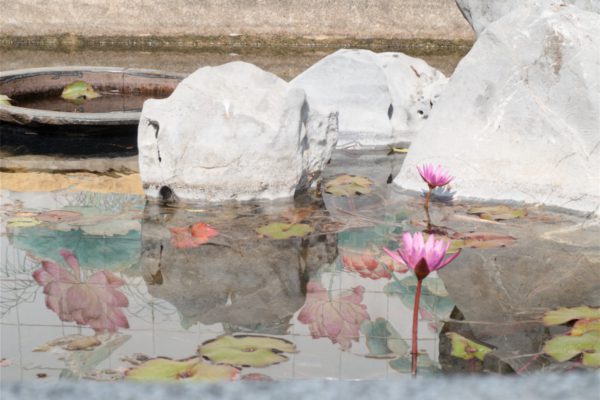Founded in 1930 by a Norwegian missionary Karl Ludvig Reichelt, The history of the Tao Fong Shan Christian Centre derives from Reichelt. As of today, we continue fulfilling the same vision as we were 90 years ago.
"It was as though I heard the Lord's voice."
Karl Ludvig Reichelt
How it all began

Spiritual practices at Tao Fong Shan
Tao Fong Shan consists of 10 places of worship, each not only has a unique meaning and story behind, but also a purpose. We worked with the pastors and spiritual directors to create a series of self-guided walks and meditations. We hope that you can practice a life of renewal and find your sense of purpose, thus deepening your faith and connection with God.
Our friends and partner

Scandinavian mission partner, Areopagos
Areopagos is a Christian organization in Norway and Denmark, which dedicated to Christian spirituality, interfaith, and intercultural dialogue and religious practices work, advocating the unity of believers and sharing the love of Christ with people of different beliefs. Since the very inception, Areopagos has supported our work and has been an important mission partner to the Centre.

Tao Fong Shan Service Unit is in charge of building management and facilities rental for general public, believers, churches and its members for retreat and other spiritual purposes. It also provides support servics to the Tao Fong Shan Christian Centre (TFSCC) and the Institute of Sino-Christian Studies (ISCS).

Institute of Sino-Christian Studies
The Institute of Sino-Christian Studies (ISCS) promotes locationization of Christianity for Chinese culture, dialogue between Christianity and Chinese religions, and enrichment of Chinese culture through studies on Sino-Chirstian theology.

Lutheran Theological Seminary owns a rich history of theological traditions. Formerly known as the reputable regional seminary for South-east Asia, the Seminary was founded in 1913 in Hubei, China, and served the Lutheran Church in China. Later, it moved to Hong Kong and subsequently became the theological education agency of the ELCHK.

Reverend Ole Skjerbæk Madsen
Endorsed by our mission partner Areopagos, Reverend Ole Skjerbæk Madsen is the founder of Christfulness, which invites people to have a deeper life in Christ. Ole spends his time partly in Hong Kong and leading his ministry at TFSCC, and partly in Denmark. Christfulness has its origin in the work of “In the Master’s Light” (IML), which is a bridge building ministry between Christians and spiritual seekers. Together with the staff at TFSCC, he explores ways to present Christian faith practice under Christfulness to the churches and the spiritual milieus of Hong Kong. Prior to Hong Kong, he graduated from University of Copenhagen with a Master’s degree in Divinity and has been a reverend since at Areopagos.

Reverend Dr. Lau Man Leung, Philze
As a Chinese culture enthusiast, Rev. Philze graduated from Hong Kong Shue Yan University with a B.A. degree in Chinese language. He was called to advocate spirituality ministry and later founded the Life Gospel with the help of a few experienced pastors, which is committed to promote spiritual intimacy with God to believers. In 2000, Rev. Philze came to Tao Fong Shan Christian Centre to study for Dr. P.C. Tam, Ekman’s Graduate Diploma in Spiritual Formation and Spiritual Direction, followed by a master’s and doctorate in divinity from the Lutheran Theological Seminary.

Reverend Dr. Chan Shing Tung, Johnathan
As the director of the Spirituality ministry at Tao Fong Shan Christian Centre, Rev. Johnathan graduated from McGill University in Canada with a B.S. degree, followed by a Master of Divinity from the China Graduate School of Theology, Hong Kong and graduate diploma in spiritual formation and spiritual direction from Tao Fong Shan Christian Centre through which he obtained a Doctor of Ministry degree in Spiritual Direction from the Graduate Theological Foundation (GTF).

Reverend Dr. Robinson Leung
After graduated from Northcote College of Education and University of Birmingham with a PGDE and degree in Philosophy of Education, and teaching at primary and secondary schools for many years, Rev. Robinson was called by God. He studied at China Graduate School of Theology, Haggai Institute, Tao Fong Shan Christian Centre, and Lutheran Theological Seminary for further study and received his MDiv (Counselling), a graduate diploma in Spiritual Formation and Spiritual Direction, and DMin with a concentration in Spiritual Direction. Prior to serving as a Spiritual Director at Tao Fong Shan Christian Centre, Rev. Robinson provides pastoral care at Tai Wai Church Kowloon Tong Alliance Church, Shatin Cumberland Presbyterian Church, and Church of Living Grace – Cheung Sha Wan for many years before he retired in 2007.

Mr. Ye Wan Shou
Mr. Ye Wan Shou is a guest spiritual director of Tao Fong Shan Christian, he is also the founder of Innerspace Counseling Service, a fellow and clinical supervisor of the Hong Kong Professional Counselling Association Limited (HKPCA), MBTI Step I & II, Enneagram & NLP trainer, as well as Accelerated Experiential Dynamic Psychotherapy(AEDP I, II, and III) trainer.

Reverend Chan Kwok Kuen, Patrick
Rev. Patrick is the director of The Tao in the world Limited and Lutheran Theological Seminary professor emeritus.

Brother Ng Wei Lit, William
Brother William is a friar at Franciscans, he held a bachelor degree in Environmental Studies (urban planning) from University of Waterloo, Canada; master’s degrees in Landscape Architecture and Divinity and Arts in Religion from University of Edinburgh, Fu Jen Catholic University, and Yale Divinity School; an education diploma from Chinese University of Hong Kong.

Reverend Dr. Bill C. Noble
Rev. Bill C. Noble is a licensed psychoanalyst and the priest-in-charge at St. James’ Episcopal Church, New Jersey, USA. He is a spiritual director and psychoanalyst in private practice and specializes in PTSD and integration of religious and spirituality into psychotherapy.

Sister Agnes Lee
Sr. Agnes is a spiritual director at the the Missionary Sisters of the Immaculate Conception of the Mother of God (S.M.I.C.) in Tainan, Taiwan. She spends many years practicing Chinese Christian Spirituality.

Dr. Celia Kourie
The University of South Africa professor emeritus is also a guest professor at St. Augustine College of SA. She specializes in Eastern and Western Mysticism amd Carmelite mysticism.

Sister Chen, Maria Stella
Sr. Agnes is a sister at the Missionary Sisters of the Immaculate Conception of the Mother of God (S.M.I.C.) in Taiwan. She practices Chinese Christian Spirituality for many years.

Dr. Evelyn E. Whitehead and Dr. James D. Whitehead
Dr. Evelyn and Dr. James are pastoral care consultants. Their works include Shadows of the Heart, Holy Eros and so on.
A letter from our director
Read about our team’s commitment to continuing to help our friends and community experience God in Tao Fong Shan after 90 years of service.

Contact us
Phone: (852) 2694-4038
Fax: (852) 2694-4040
Email: hello@tfscc.org
Address: 33, Tao Fong Shan Road, Sha Tin, Hong Kong
Getting here
Coming by the MTR? You can simply take the public transport to Sha Tin station, next to the Sha Tin Rural Committee you will find a walking trail. It will take about 30 minutes if you choose to hike. Or, you can take the MTR to Tai Wai station, and then take a taxi to Tao Fong Shan Christian Centre.

